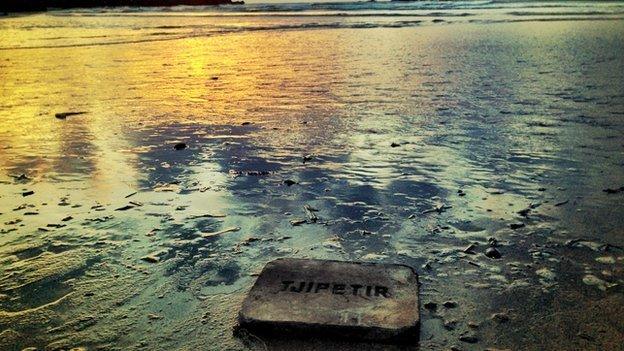Plastic 'nurdles' found littering UK beaches
- Published
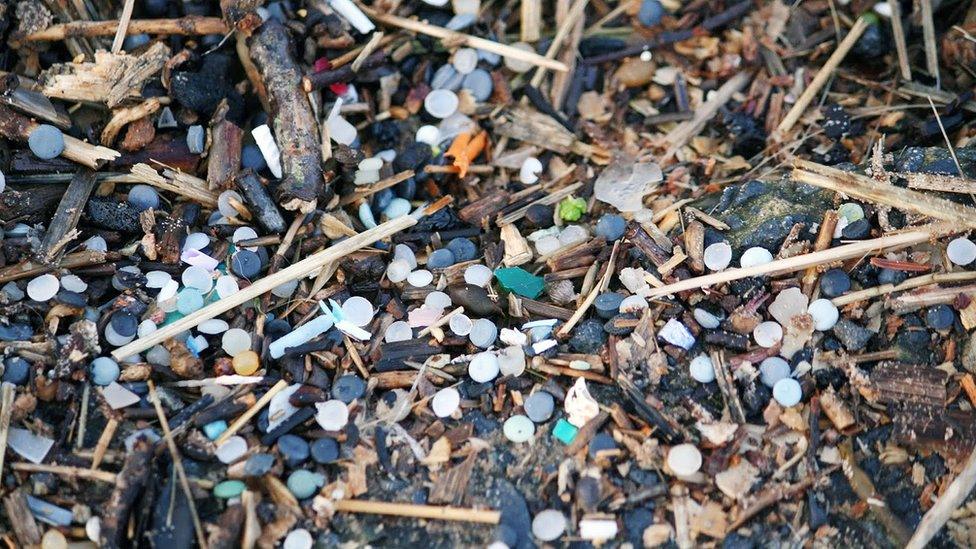
These little round pellets have a name - nurdles
A search of 279 beaches around the UK has found that almost three-quarters of them were littered with tiny plastic "nurdles".
Volunteers signed up to search their local shoreline, ranging between Shetland and the Scilly Isles, for the lentil-sized pellets, used as a raw material to make plastic products.
They can cause damage to such wildlife as birds and fish, which eat them.
The findings will be reflected in a government study into microplastics.

What's the problem?
Campaigners estimate that up to 53 billion of the tiny pellets escape into the UK's environment each year.
This happens during the manufacture, transport or use of plastic products.
The nurdles are often spilt accidentally into rivers and oceans or fall into drains where they are washed out to sea.
Experts warn nurdles can soak up chemical pollutants from their surroundings and then release toxins into the animals that eat them.

How easy is it to find a nurdle?
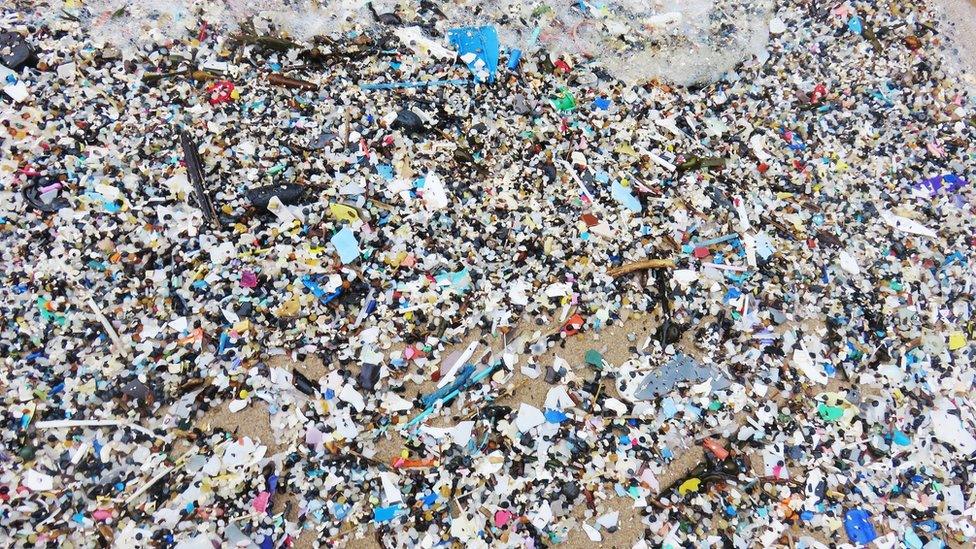
Many thousands of nurdles were found near Newquay, Cornwall
The Great Winter Nurdle Hunt survey, external was carried out by 600 volunteers over a weekend in early February.
The largest number recorded were found at Widemouth Bay, Cornwall, where 33 volunteers collected some 127,500 pellets found on a 100-metre stretch of beach.
But there were some beach hunts that yielded no nurdles at all, including Spurn Point in Yorkshire and Sully beach in south Wales.
Nurdles are one of the main sources of "primary microplastics" - small pieces of plastic which have come from larger items broken down into little bits - in European seas.

What can be done?
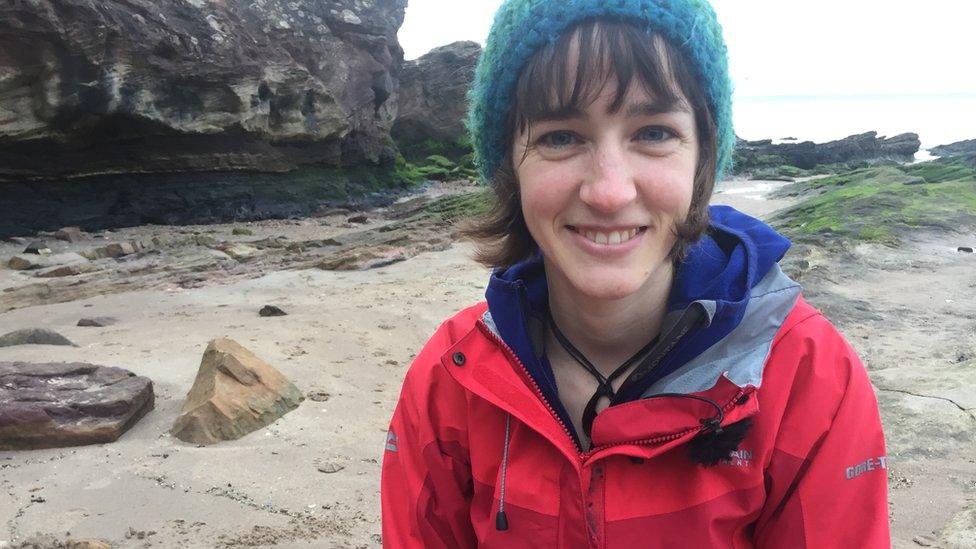
Madeleine Berg says there are thousands of nurdles buried on Gullane beach in East Lothian
Madeleine Berg of Fidra, a Scottish environmental charity which organised the hunt, said it showed action was needed.
"Simple precautionary measures can help spillages and ensure nurdles don't end up in our environment," she said.
"We are asking the UK government to ensure best practice is in place along the full plastic supply chain, and any further nurdle pollution is stopped."
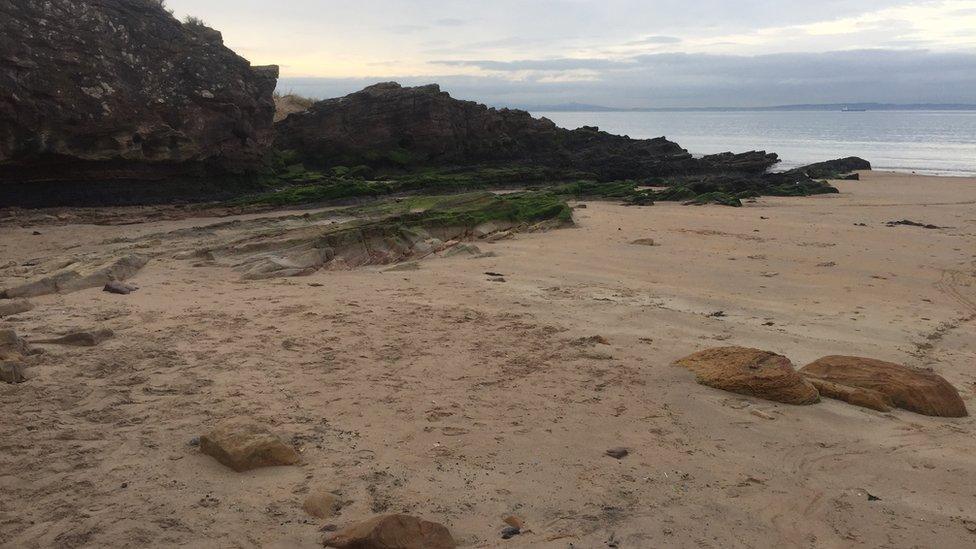
One of the companies that has signed up to Fidra's Operation Clean Sweep, external is Scottish hauliers, John Mitchell, who distribute plastic pellets.
Each of their transporters are fitted with spill kits and black bin bags to collect spilled pellets, which are then recycled.

Another step in wider 'war on plastic'
The findings come after another campaign, external by Fidra, which saw Johnson & Johnson announce that their cotton buds will no longer have plastic stems.
As of this week, the multinational company will change their buds from plastic to paper in almost half the world's countries, including the whole of Europe, in an attempt to cut marine pollution.
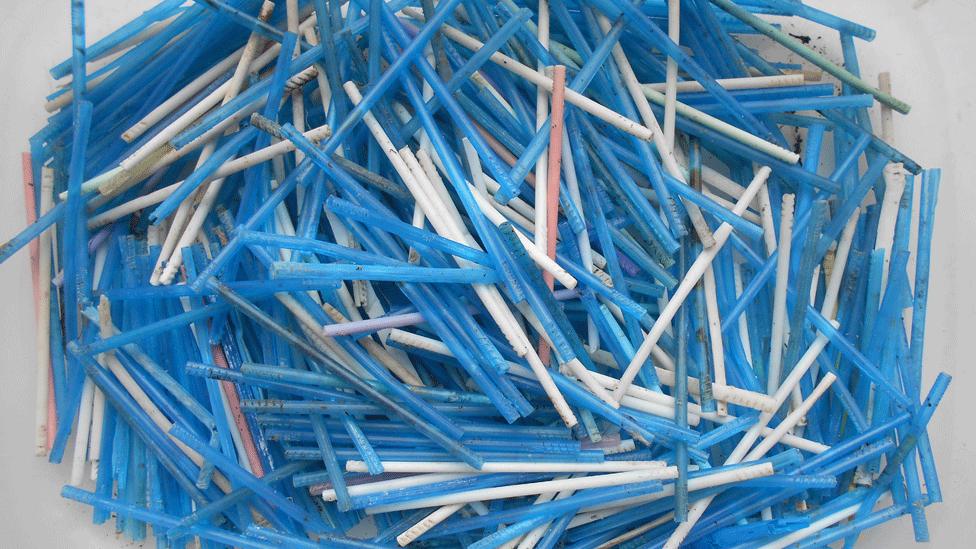
Johnson & Johnson's iconic blue cotton bud stems will no longer be made from plastic
Plastic stems are one of the most common items of litter found on UK beaches. They end up in our oceans after the cotton buds - which are not supposed to be flushed down the toilet - enter the sewage system.
Waitrose, John Lewis, Marks and Spencer and the Body Shop are among the brands already selling non-plastic cotton buds.
A further 10 retailers, external including Tesco, Boots and Mothercare have said they will change from plastic to paper stems by the end of 2017.

- Published21 July 2014
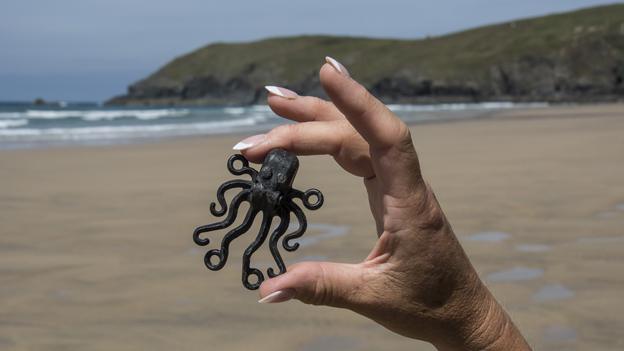
- Published1 December 2014
